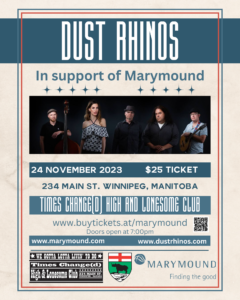Marymound Conference, Training & Event Centre
Workshops
Marymound is a leader in offering professional development opportunities to the education and human service sectors that grounded in trauma-informed approaches. After almost a decade of offering in-person and virtual conferences, we are happy to launch the Marymound Training Centre.
The Marymound Training Centre will offer an annual conference along with a series of smaller workshops that will be offered in Fall, Winter, and Spring sessions. Conferences and workshops will focus on topics that support mental health, dive deeper into understanding trauma, and celebrate resilience. Our goal is to provide quality professional development opportunities that empower care providers across multiple human sectors to build their knowledge base and enhance service delivery to individuals who are impacted by trauma.
Check out our current Training Catalogue below.

 Conferences & Training Centre
Conferences & Training Centre